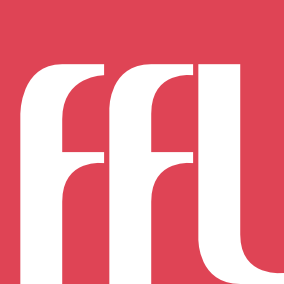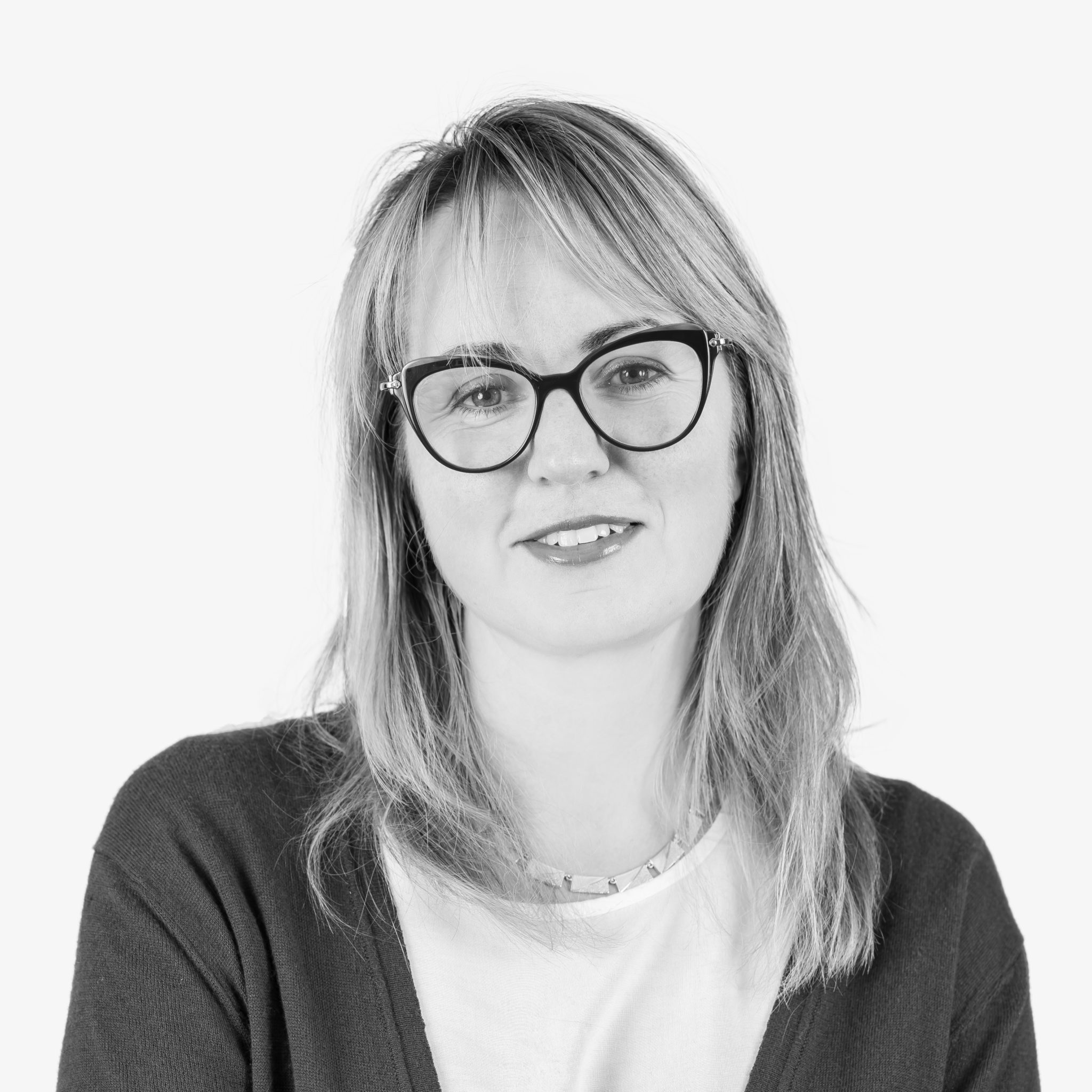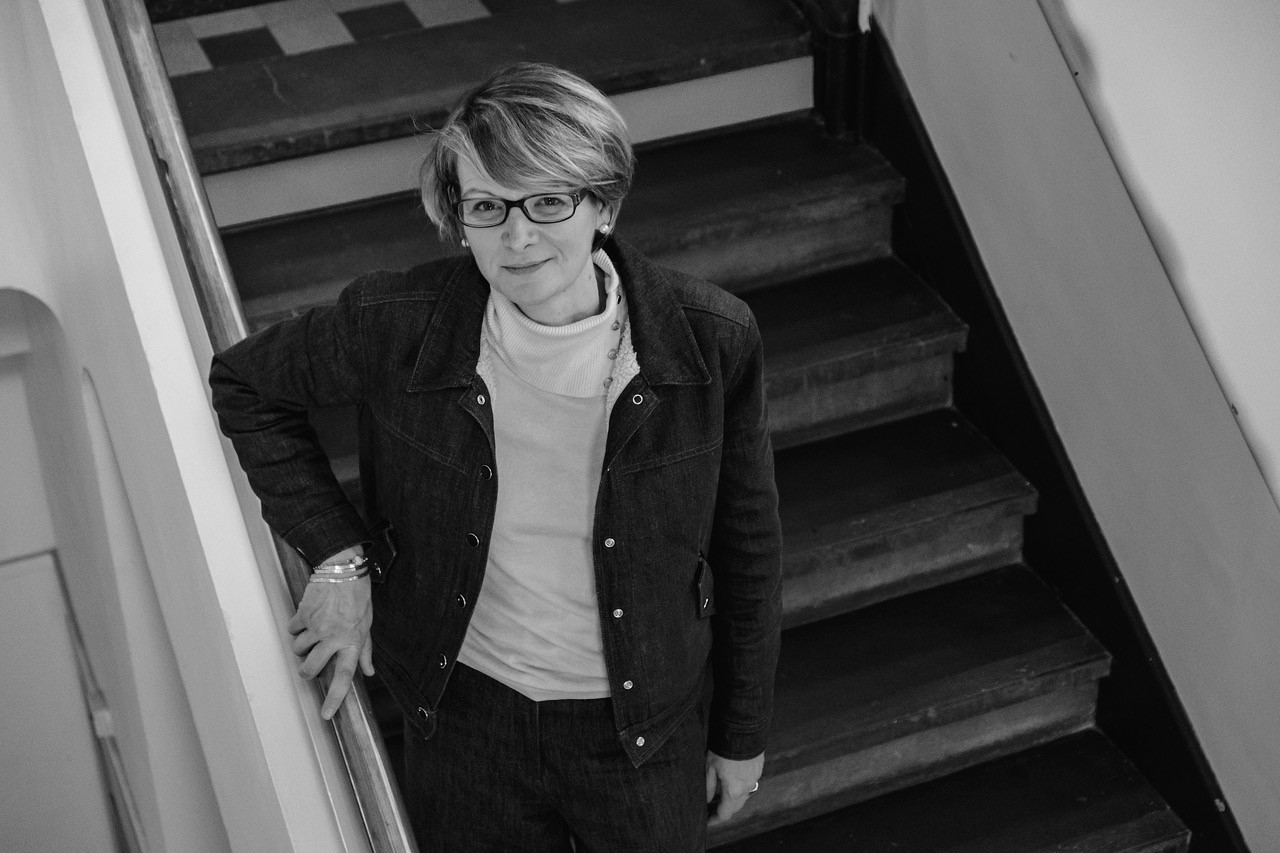These are the winners of the Open Call 2022 re:sources – Category: Project
It is with great pleasure that we would like to announce the names of the four winners.
Sandrine Elberg, France
JÖKULL *
Sandrine Elberg is a visual artist born in Versailles, France. She studied film, audiovisual media and art. She later completed additional education at the Fine Arts School in Paris, where she received her diploma in 2003. Since 2015, her work has focused on astronomy and natural sciences. She has already participated in various photo exhibitions and art events in prestigious institutes.
“Jökull” is a homage to the sublime, to Iceland’s glaciers with their faults, scars, whirls, troughs and crevasses. Portraying the glaciers under the moonlit and starry skies of the island, Sandrine Elberg’s invites us to imagine these monoliths of ice as terrestrial resources of (probable) extraterrestrial origins, to draw comparisons between the forces that shape our planet within geological periods and the speed of human made climate change. On August 18, 2019, Icland declared the first of its glaciers as disappeared. 400 more may follow within the next 200 years, if greenhouse emissions remain at the current rate.
Statement Jury: “The jury was persuaded by the way the project ‘Jökull’ pays tribute to the memory of Icelandic glaciers by transferring these natural landscapes to a journey to unknown realms.”
 “The memory of glaciers”
“The memory of glaciers”
* Jökull = glacier, translated from Icelandic
Ingar Krauss, Germany
The Solitaries
Ingar Krauss was born in East Berlin and, after his first education and working as a craftsman, he pursued various professions before turning to photography in the mid-1990s. Since then he has participated in numerous international group exhibitions, for example at the Hayward Gallery in London, the Musée de l’Elysée in Lausanne, the Palazzo Vecchio in Florence, the International Center of Photography in New York and the Moscow House of Photography.
For years, Ingar Krauss has been portraying the sparsely populated northeast of Germany and dedicates his current work, “The Solitaries”, to the so-called old white men who live there, often alone and very isolated. This is definitely not the romanticized world of the new “country life” and the weekend subsistence farmers, but rather the harsh reality of a part of society that has fallen out of time, or as the artist writes, “a new male-dominated underclass (…) whose members are excluded from participation in essential areas of society: they often have no job, no decent education and no wife.”
Jury statement: “The jury was impressed by the consistent way Krauss portrays the people, their dwellings and the surrounding landscapes through his entirely analog and decelerated photographic approach. One notices in the understated stagings of his pictures the great sympathy the artist harbors for this stretch of land and its thinly spread population.”
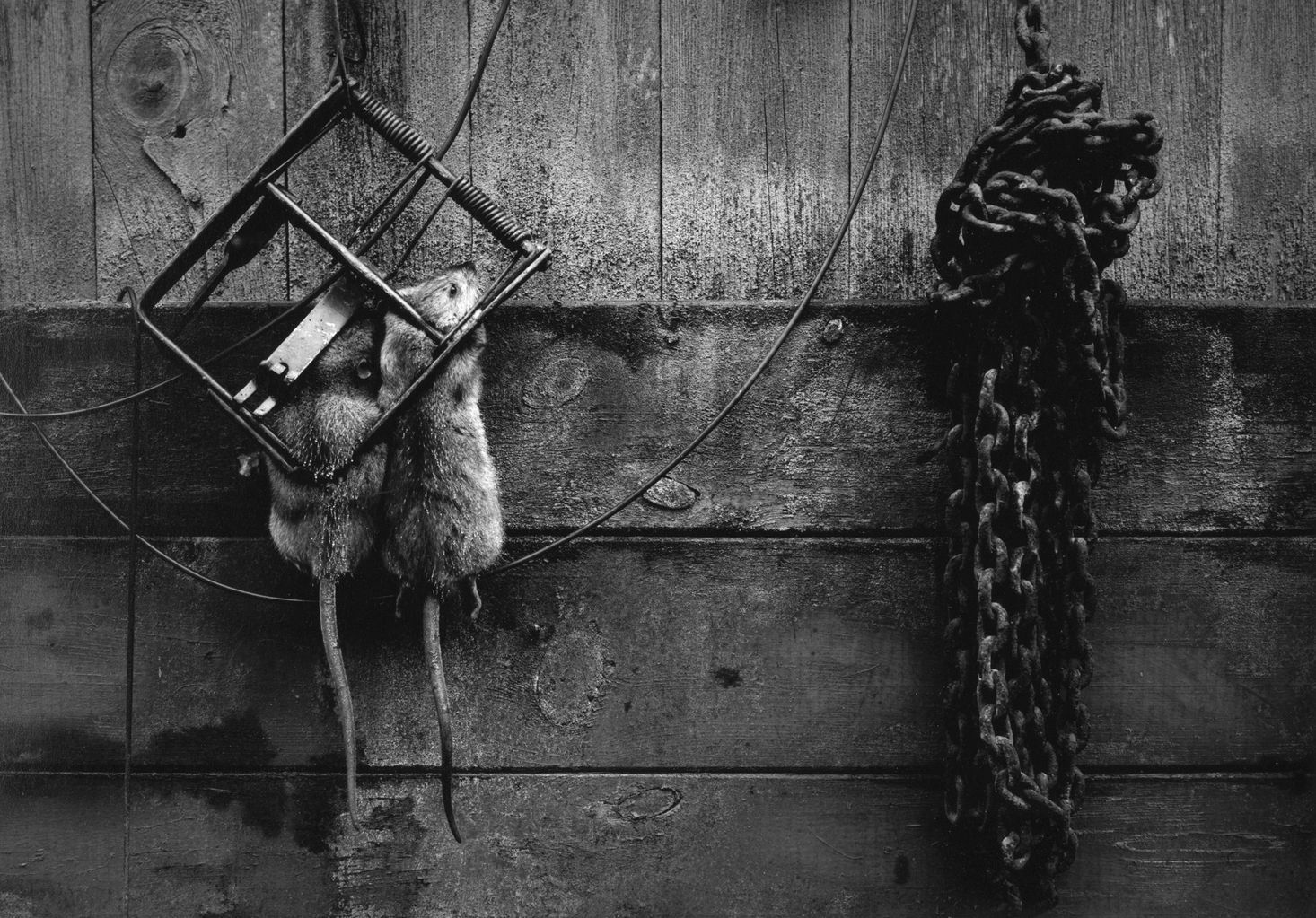
The Solitaries (04)
Antonio Pérez, Spain
THE SEA MOVES, THE SEA MOVES
Antonio Pérez is a photographer, professor of Communication, New Media and Journalism at CIEE and collaborator in various educational centers, art galleries and public institutions. His works have appeared in solo and collective exhibitions and prestigious publications (for example, “Dictionary of Spanish Photographers”, 2014) and have received various national and international awards.
Antonio Pérez confronts us with people who are among the very first to experience the direct and lasting consequences of climate change, whose dwellings have fallen victim to the coastal erosion of rising sea levels. In well-considered diptychs, his photographs show the scenes of destruction while simultaneously introducing us in portraits to individual people affected. These images underscore the absolute conditions that require relocation and new beginnings elsewhere, whether just a few hundred yards inland or in more far-off destinations that promise a more permanent refuge and a more prosperous future.
Jury statement: “The jury was persuaded by the way in which these double portraits show the symptoms and consequences of the climate changes caused mainly by us, especially as they occur in other places and often poorer regions, such as this one in Fuvemeh (Ghana). It is here that livelihoods, sources of income and ways of life are being destroyed that normally go unseen in our resource-consuming and carbon-fueled affluence in Europe.”
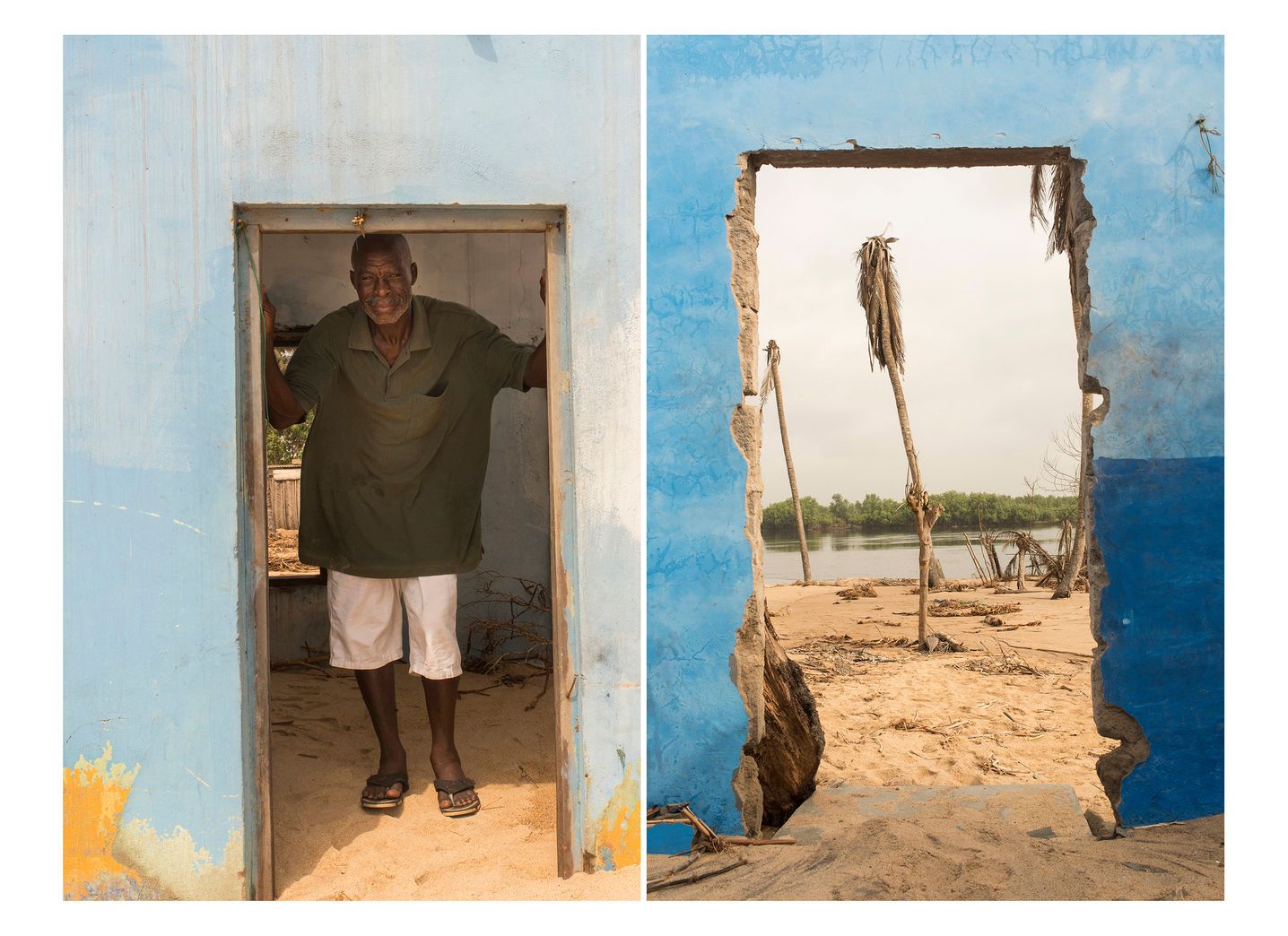
09 “Akpabli Agbokede”
Ngadi Smart, UK
“Wata Na Life”
Ngadi Smart is a Sierra Leonean photographer based in London, United Kingdom, and Côte d’Ivoire. In her photography she focuses on documenting cultures, subcultures and intimacy. Often her works speak about how people identify themselves. Her goal is to show what it means to be African:in. Her work has been featured on CNN, British Journal of Photography, Vogue Italia, Atmos Magazine and I.D Magazine.
In “Wata Na Life”, Ngadi Smart addresses the global water crisis, specifically examining the link between climate change and water in her own country of origin, Sierra Leone. She layers various realities of the issue into single images and, in doing so, assembles a collage of effect that rings more true than purely documentary depictions. Exaggerated and inserted colors meet portraits of the people she encountered, combined with images of the places she visited and objects she found. As a result, the artist creates a generous aura of authenticity and a heightened sense pertinence. In her work, water truly becomes an element and resource, not just a topic.
Jury Statement: “In a field of contenders of literal and often sober interpretations of the festival theme re:sources, Ngadi Smart’s work stood out for its refreshing approach and striking visual language.”
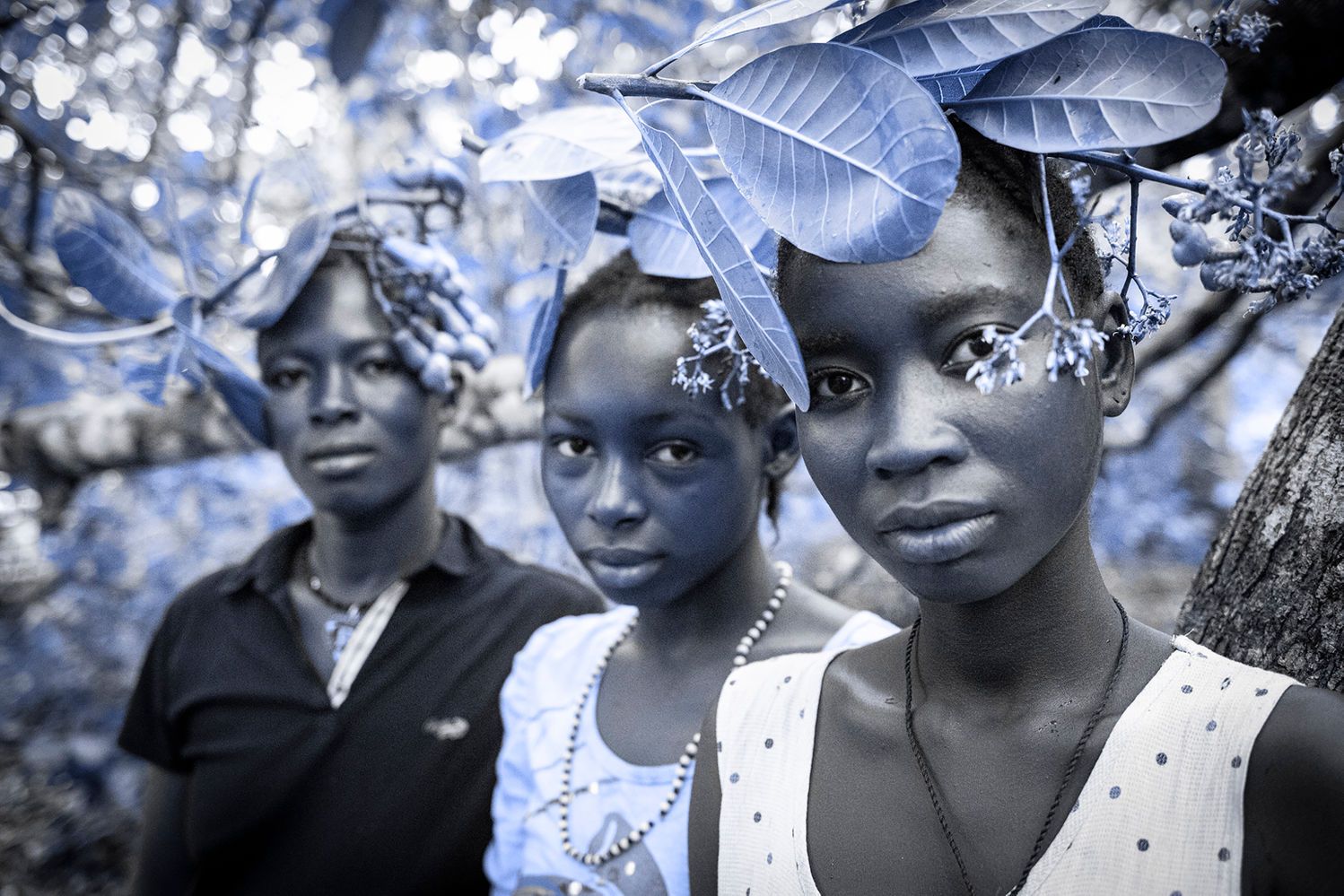
15 “Wata Na Life”
Shortlist of the OPEN CALL 2022:
Carlo Bevilaqua, Italy
Sandrine Elberg, France
Robin Hinsch, Germany
Niklas Hlawatsch, Germany
Sanna Kannisto, Finland
Ingar Krauss, Germany
Kostas Maros, Switzerland
Antonio Pérez, Spain
Tim Rod, Switzerland
Ngadi Smart, United Kingdom
Simone Tramonte, Italy
As we all know only too well, there have been enormous changes and unprecedented challenges in all areas of life since the start of 2020: Everything we hold dear, everything we take for granted, everything that gives us support, everything that gives us a sense of security, has been challenged. The voids in our lives on the other hand allowed us to reevaluate what may be truly valuable to us. Deprivation proved to us what is most urgent to care about and explore what are essential resources for humanity and in general for our world. On the material as well as the immaterial levels.
The origin of a better future is always in the now. And photography is the perfect medium to contemplate this moment, reflecting on the past and projecting onto what is to come. For the 2022 edition, Fotofestival Lenzburg continues to explore the theme of resources, focusing on the relationship between man and nature, the health and well-being of all of us, and the major climatic and human changes that we are currently experiencing.
What the winners receive
- Exhibition during the Festival for 4 selected projects and more than 50 single images.
- Jury’s Prize for best “Project”: 1.500 CHF
- People’s Prize for best “Single Image”: 1.000 CHF
- Accommodation in Lenzburg for the opening’s weekend (27-28 August 2022)
- Dedicated feature on the Festival’s website and communication channels / features in Festival’s partners channels (up to 20 partners)
Judging Criteria
The jury will decide which project addresses the theme re:sources with depth, high quality and original photographic language. Projects may have already been produced and exhibited but must be recent (no older than 2018). Photographic projects designed for indoor or open air exhibitions, printed or digital are eligible.
